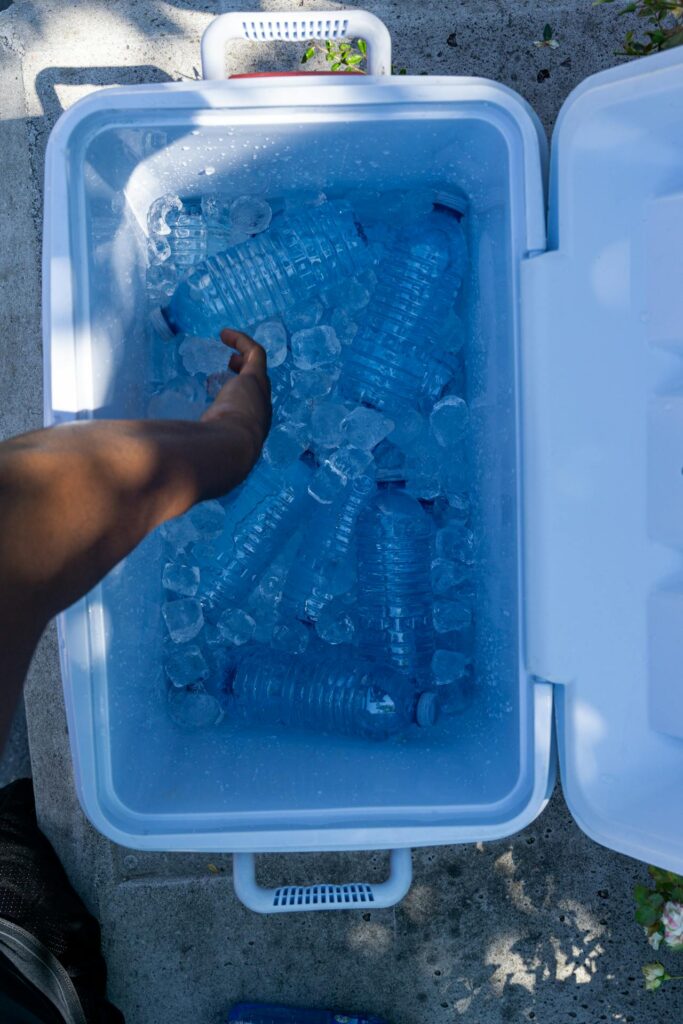The sun’s been ruthless this week across the Northeast. It’s been all sweat and no mercy from the Bronx to Jersey. Triple digits. Concrete steaming. Shade is running low. And when the heat hits like this, most of us reach for the same thing—a tall, frosty glass. Ice cubes clinking, condensation trailing. Cold water.
But that chill might be cooling your tongue while quietly throwing your body off balance. And for some reading this, the very idea of giving up arctic-cold water might already feel absurd, like an offense to comfort itself. That’s not your fault. That’s programming. Years of marketing, habit and sensory reward have wired us to crave the cold, even when it clashes with what the body truly needs.
Science has been quietly whispering a different story. Drinking cold water, especially during or after meals, causes blood vessels around the stomach to constrict. That means slower digestion, harder breakdown of fats, and often, bloating. A 2001 study in Clinical Autonomic Research found cold water ingestion significantly altered heart rate and nervous system response, pushing the body into a low-grade stress mode.
Have you ever felt sluggish or tight after drinking cold water with food? That’s not hydration—it’s disruption.
Eastern traditions have echoed this wisdom for centuries. In Ayurveda, cold drinks are said to dampen Agni, the digestive fire that fuels all bodily transformation. Traditional Chinese Medicine calls it spleen and stomach “qi stagnation,” leading to fatigue and heaviness.
Even naturopathic practitioners today are raising concerns. “Cold water shocks the system and slows digestive enzymes,” says Dr. Salma Sharif, a naturopath based in Atlanta. “The body then has to work overtime just to absorb nutrients. It’s a cooling illusion that can cause deeper imbalance over time.”
There are exceptions.
After a workout, a bit of cool water can help recalibrate you when your core temperature is elevated, especially when paired with electrolytes. Sipping cold water during extreme heat may offer quick relief, but often triggers a thermogenic rebound: your body heats back up internally to counteract the cold. A 2007 study in The Journal of Clinical Endocrinology & Metabolism confirmed this, noting a sharp increase in internal body heat after drinking cold water.
In the context of digestion, though—especially if you’re already running hot, tired, or sensitive—cold water does more harm than good.
Instead of chugging from the freezer, let refrigerated water sit for a few minutes before drinking. Lukewarm or room-temperature water doesn’t mean warm like soup. It means gentle on your gut, supporting instead of shocking.
Real cooling comes from balance. Herbal teas like mint, hibiscus, or lemongrass, gently cooled but not iced, help regulate internal temperature without disturbing digestion. Fresh cucumber juice or watermelon—without ice—offers hydration and natural cooling through compounds like L-citrulline. Lemon and honey in lukewarm water doesn’t just taste good—it hydrates, soothes and nourishes. And coconut water, sipped slowly and not straight from the freezer, replenishes electrolytes naturally.
We’ve been conditioned to associate “cold” with “refreshing.” The colder, the better. But that’s a story sold to us by decades of commercials and convenience, not by nature, tradition, or the body’s intelligence.

Your gut isn’t just a tube for food—it’s your engine. Your center. And it runs best when it’s not being hit with temperature shocks. Cooling the body should never come at the cost of your digestion or internal rhythm.
The key isn’t to reject cold water altogether—it’s to know when it truly serves you and when it sets you back.
Try a week without ice. Let your senses recalibrate. Notice the difference in your energy, meals and mood. Don’t just follow the cold; follow the balance.